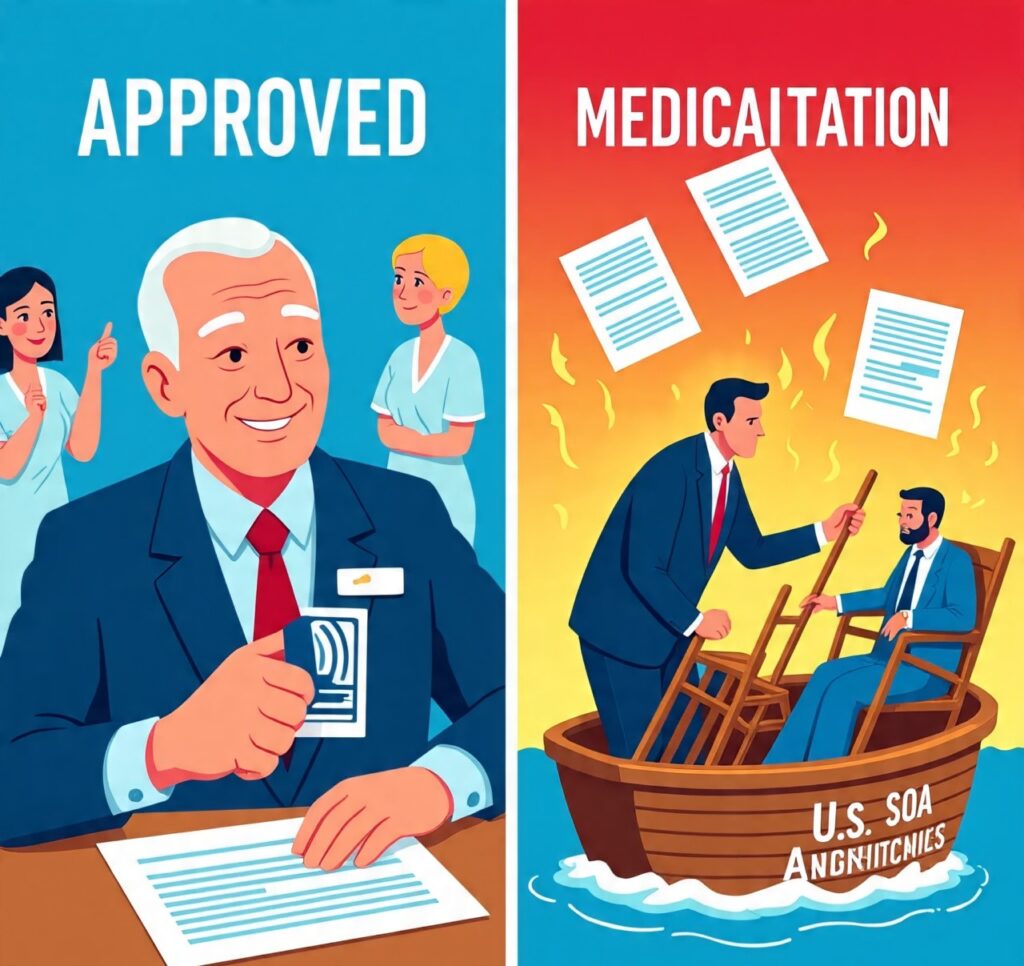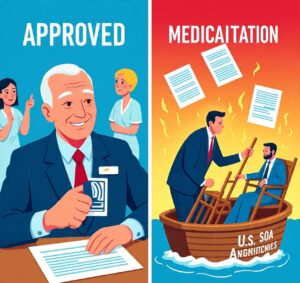The Social Security Administration has added 13 more severe medical conditions to its Compassionate Allowances list. This change will help patients with these diagnoses get disability benefits more quickly.
The CAL program, launched in 2008, aims to speed up approval for Social Security Disability Insurance (SSDI) and Supplemental Security Income (SSI) for people with serious illnesses. Since it started, over 1.1 million people have received benefits through this faster process, according to the agency.
“We are always looking for ways to improve our disability programs and serve the public better,” said SSA Commissioner Frank Bisignano. He described the update as part of a broader commitment to compassion in benefits processing.
The 13 New Conditions Added
- Au-Kline Syndrome
- Bilateral Anophthalmia
- Carey-Fineman-Ziter Syndrome
- Harlequin Ichthyosis, Child
- Hematopoietic Stem Cell Transplantation
- LMNA-related Congenital Muscular Dystrophy
- Progressive Muscular Atrophy
- Pulmonary Amyloidosis, AL Type
- Rasmussen Encephalitis
- Thymic Carcinoma
- Turnpenny-Fry Syndrome
- WHO Grade III Meningiomas
- Zhu-Tokita-Takenouchi-Kim Syndrome
This update raises the total number of conditions on the list to 300. For those who qualify, the program can bypass much of the normal backlog, often reducing the wait from months to weeks.
Not Everyone is Applauding
While disability advocates welcome any step that speeds up life-saving benefits, some believe this change is overshadowed by the Trump administration’s broader cuts to the social safety net.
Jessica Mason, senior policy analyst for the National Partnership for Women & Families, describes it as a case of “good headline, bad follow-through.”
“Tweaking the Compassionate Allowances list is a bit like rearranging deck chairs while the ship is on fire,” Mason said. “For disabled people to thrive, we need more than process improvements; we need real investment in staffing, infrastructure, and a stronger safety net.”
The criticism highlights recent layoffs at SSA, along with new budget laws that cut Medicaid and food assistance programs many disabled people depend on.
So, while the 13 new conditions are a step forward, advocates warn that it’s happening on a shrinking foundation. Even a fast track is no help if the rest of the system is falling apart.




